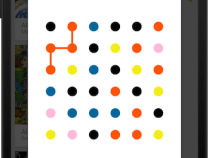
After launching the iOS version of its mobile app advertising platform at TechCrunch's Disrupt conference in September, Voxel is announcing that it can now virtualize Android apps as well.
The Voxel platform allows developers to run their apps in the cloud, which in turn allows users to interact with apps without installing them. The company is pitching this as a new way for developers to advertise their apps (so a user can play a game before being asked to download it). The technology could eventually be used for other purposes, such as virtualizing enterprise apps to protect sensitive data.
Co-founder and CEO David Zhao (formerly the CEO of ZumoDrive-maker Zecter, which was acquired by Motorola Mobility) told me that since the initial launch, Voxel has attracted interest from a number of ad networks and publishers, though he couldn't announce any new deals. (The company has already announced partnerships with RTB.com, AppSponsor, PlayHaven, and Quixey.)
Zhao did say that the initial interest made it clear that it was important to support both iOS and Android apps: "Everybody that we're working with has a presence on both iOS and Android." He argued that most developers prefer to try new ideas on Android first, since they don't have to wait for Apple's App Store approval process.
Voxel now says it can both virtualize Android apps and, through a new Android software development kit, allow developers and ad networks to stream the virtualized apps on Android. Apparently, the main challenge was dealing with the fragmentation of the platform - the fact that Android is running in so many versions on so many different types of devices.
"It's a slightly higher latency on Android than iOS," Zhao added. "That's mostly due to the architecture of the two operating systems and how they handle video and audio. But it's not that noticeable to the end user."
Zhao demonstrated a few apps for me (via Skype), and it did look liked they'd achieved the same speed and responsiveness that the the company had already shown on iOS.

0 comments :
Post a Comment